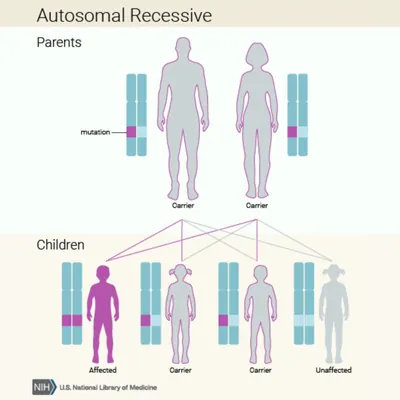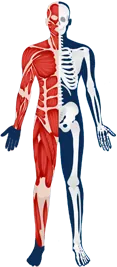Autosomal Recessive

If both biological parents are carriers, there is a 25% their child inherits both copies of the mutated gene and is affected by the disease. Additionally, there is a 50% chance their child inherits only one copy of the mutated gene and is a carrier.
Learn more about inheritance patterns from the National Library of Medicine (NLM).








